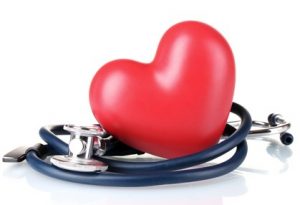Do Eggs Reduce Heart Disease Risk?
Author: Dr. Stephen Chaney
Are eggs good for you?
 If you are like most Americans, you are probably confused about whether you should eat eggs or not. It’s no wonder. The story about eggs keeps changing.
If you are like most Americans, you are probably confused about whether you should eat eggs or not. It’s no wonder. The story about eggs keeps changing.
Just a few years ago we were told that eggs were full of cholesterol. They would increase our risk of heart disease. We should avoid them. If we did eat eggs, it should just be the egg whites because all the cholesterol was in the yolk.
Then we were told that the latest science showed that dietary cholesterol didn’t have much of an effect on serum cholesterol levels. It was saturated fats, trans fats, and obesity that raised serum cholesterol levels. Several major studies found that eggs didn’t increase heart disease risk. But we were told not to overdo it. Two to three eggs a week were probably OK, but more might be risky.
Now the headlines proclaim that eggs are good for our heart. They decrease heart disease risk. You can eat an egg every day and actually reduce your risk of heart disease. What is the truth? Let’s start by looking at the study (C. Qin et al, Heart, doi: 10.1136/heartjnl-2017-312651 ).
How Was The Study Done?
 The study was performed in China. 500,000 adults (aged 30-79 years) from 10 diverse sites in China were enrolled in the study between 2004 and 2008. At the beginning of the study, the participants were asked about the frequency of egg consumption. A subset of the participants was asked about egg consumption at regular intervals during the first year to assess whether egg consumption was constant. The participants were followed for 8.9 years and cardiovascular incidents were determined from multiple health registries in China.
The study was performed in China. 500,000 adults (aged 30-79 years) from 10 diverse sites in China were enrolled in the study between 2004 and 2008. At the beginning of the study, the participants were asked about the frequency of egg consumption. A subset of the participants was asked about egg consumption at regular intervals during the first year to assess whether egg consumption was constant. The participants were followed for 8.9 years and cardiovascular incidents were determined from multiple health registries in China.
In terms of egg consumption:
- 9% of the population never consumed eggs or consumed them very infrequently.
- 20% of the population consumed eggs 1-3 days/month.
- 47% of the population consumed eggs 1-3 days/week.
- 11% of the population consumed eggs 4-6 days/week.
- 13% of the population consumed eggs daily (average = 0.76 eggs/day).
Are Eggs Good For You?
 When the scientists conducting the study compared participants reporting daily egg consumption with those who never or rarely consumed eggs:
When the scientists conducting the study compared participants reporting daily egg consumption with those who never or rarely consumed eggs:
- Overall risk of cardiovascular disease was lowered by 11%
- Risk of heart attacks was lowered by 12%
- Risk of major cardiovascular events was lowered by 12%.
- Risk of hemorrhagic stroke (stroke caused by bleeding in the brain) was lowered by 26%
- Risk of ischemic stroke (stroke caused by a blood clot) was lowered by 10%.
In addition, daily egg consumers lowered their risk of:
- Cardiovascular death by 18%.
- Hemorrhagic stroke death by 28%.
The reduction in hemorrhagic stroke risk is particularly significant for the Chinese. In China stroke is the leading cause of death and disability. The reasons for the high stroke risk in China are not well understood. However, the smoking rate and the incidence of high blood pressure are both higher in China than in the United States.
What Does This Study Mean For You?
There are some weaknesses to this study. For example, participants reporting daily egg consumption had a higher level of education and household income, were more likely to take a multivitamin supplement, and less likely to have high blood pressure than participants reporting little or no egg consumption. The authors did their best to compensate for these differences statistically, but there is always the concern that they might have introduced bias into the conclusions.
More to the point, diet and lifestyle are very different in China than in the United States. That also could have influenced the results. Thus, it is, perhaps, premature to claim the eggs reduce the risk of heart disease. However, several major studies performed in the United States have shown that eggs do not increase heart disease risk. That means eggs can be part of a heart healthy diet. According to the Mayo Clinic : “Most healthy adults can eat up to seven eggs a week with no increase in their risk of heart disease.”
That is fortunate because eggs are a very healthy food. According to the authors of this study:
- Studies have shown that egg protein results in better blood sugar control, better satiety (feeling of fullness), and reduced subsequent food intake in healthy and overweight individuals. In layman’s terms that means egg protein can help you achieve and maintain a healthy weight.
- Egg yolks are a good source of lutein and zeaxanthin. We think of lutein and zeaxanthin as good for eye health. But, they also play an important role in protecting against oxidation, inflammation, and atherosclerosis.
- Egg yolks also contain choline. We think of choline as good for brain and nerves. But, choline and other phospholipids in the yolk also raise HDL levels and enhance HDL function.
- Eggs are a good source of vitamin A, vitamin D, vitamin B12, riboflavin, selenium and iron.
- Eggs contain almost twice as much monounsaturated and polyunsaturated fats as saturated fats.
 There is one other possible takeaway from this study. Let’s return to the differences between the Chinese study and US studies. There is one other major study showing that daily egg consumption reduces heart disease risk, and it was performed in Japan. What is different between Japan, China, and the United States you might ask. The answer is simple. They consume primarily plant-based diets.
There is one other possible takeaway from this study. Let’s return to the differences between the Chinese study and US studies. There is one other major study showing that daily egg consumption reduces heart disease risk, and it was performed in Japan. What is different between Japan, China, and the United States you might ask. The answer is simple. They consume primarily plant-based diets.
That suggests eggs may be healthier as part of a primarily plant-based diet than they are as part of the typical American diet. In short, eggs are healthy. It’s the sausage, bacon, ham, breakfast muffin, and biscuits that are the problem.
Are eggs good for you? Yes.
For more information on heart healthy diets, read my book “Slaying The Food Myths.”
The Bottom Line:
A recent study looked at the effect of egg consumption on heart disease risk in China. It found that people who consumed one egg per day had significantly lower risk of heart disease risk than people who seldom or never consumed eggs.
This study has some shortcomings and may not be directly applicable to those of us in the United States. However, several major studies in the United States have concluded that egg consumption does not increase heart disease risk. That means eggs can be part of a heart healthy diet. According to the Mayo Clinic: “Most healthy adults can eat up to seven eggs a week with no increase in their risk of heart disease.” That is fortunate because eggs are a very healthy food.
There is one other major study showing that daily egg consumption reduces heart disease risk, and it was performed in Japan. What is different between Japan, China, and the United States you might ask. The answer is simple. They consume primarily plant-based diets.
That suggests eggs may be healthier as part of a primarily plant-based diet than they are as part of the typical American diet. Are eggs good for you? Yes, eggs are healthy. It’s the sausage, bacon, ham, breakfast muffin, and biscuits that are the problem.
For more information on heart healthy diets, read my book “Slaying The Food Myths.”
For more details on this study, read the article above:
These statements have not been evaluated by the Food and Drug Administration. This information is not intended to diagnose, treat, cure or prevent any disease.
